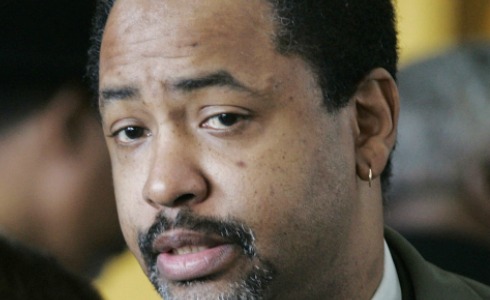
The Illinois Supreme Court on Thursday reversed an appellate court’s decision that tossed guilty verdicts and sentences for owners of a Chicago nightclub where 21 people were crushed to death in 2003 as they stampeded down a stairwell from the second floor.
The unanimous ruling by the six-justice panel could pave the way for the two co-owners of the E2 to eventually go to prison — more than ten years after the tragedy at the South Side club, which also injured around 50 people.
Dwain Kyles and Calvin Hollins were convicted in 2009 of indirect criminal contempt for violating a housing court order that they close the club’s second floor on safety grounds; they were sentenced to two years in prison. But in 2011, appellate judges reversed the convictions, saying the order had been unclear.
In their 18-page ruling Thursday, the justices stopped just short of ordering the reinstatement of the verdicts and sentences. But they made clear they believed the 1st District Appellate Court was wrong to throw out the convictions.
“Had the appellate court considered the evidence in the light most favorable to the jury’s verdict, it would have concluded that respondents were proved guilty beyond a reasonable doubt,” the ruling said.
They also rejected the appellate court’s key conclusion that the building order issued a year before the tragedy was ambiguous. The high court said the order — which read, “Mandatory order not to occupy 2nd floor” — was “sufficiently certain, clear, and concise.”
The E2 owners won’t be jailed immediately. But Thursday’s ruling puts them back in legal limbo. The same appeals court must decide again, and chances Kyles and Hollins will prevail seem sharply reduced now that appellate judges must factor in the Supreme Court’s findings.
On Feb. 17, 2003, someone had used pepper spray to break up a fight on E2’s second-floor, sending hundreds of patrons bolting for the narrow stairwell and to the lone exit door below. In the chaos, the door became jammed by an ever-tightening crush of bodies that piled six feet high.
The E2 tragedy, along with a fire in a Rhode Island nightclub three days later that killed 100, prompted a nationwide effort to step up nightclub safety measures.
Victor Henderson, an attorney for Kyles, said he’s disappointed with the ruling but that it could have been worse and explicitly reinstated the verdicts.
“Dwain Kyles’ primary concern has always been the young people affected by the tragedy,” Henderson said. “He has been steadfast and prayerful all the way through this process.”
In its response, the city of Chicago’s law department — which had asked Illinois’ highest court to look again at the case — said it was pleased the ruling appeared to agree the owners did violate the order.
“But for those violations, this tragedy would not have occurred,” it said in a Thursday statement.
A message seeking comment from Hollins’ public defender, Abishi Cunningham Jr., was not immediately returned Thursday.
Kyles and Hollins, who have been free throughout the appellate process, have argued that they did close a mezzanine balcony on the second floor. That is what they understood the court order mandated they do instead of closing the entire second floor, they have said.
In 2007, Hollins was acquitted of involuntary manslaughter charges and the same charges were dropped against Kyles in 2008.